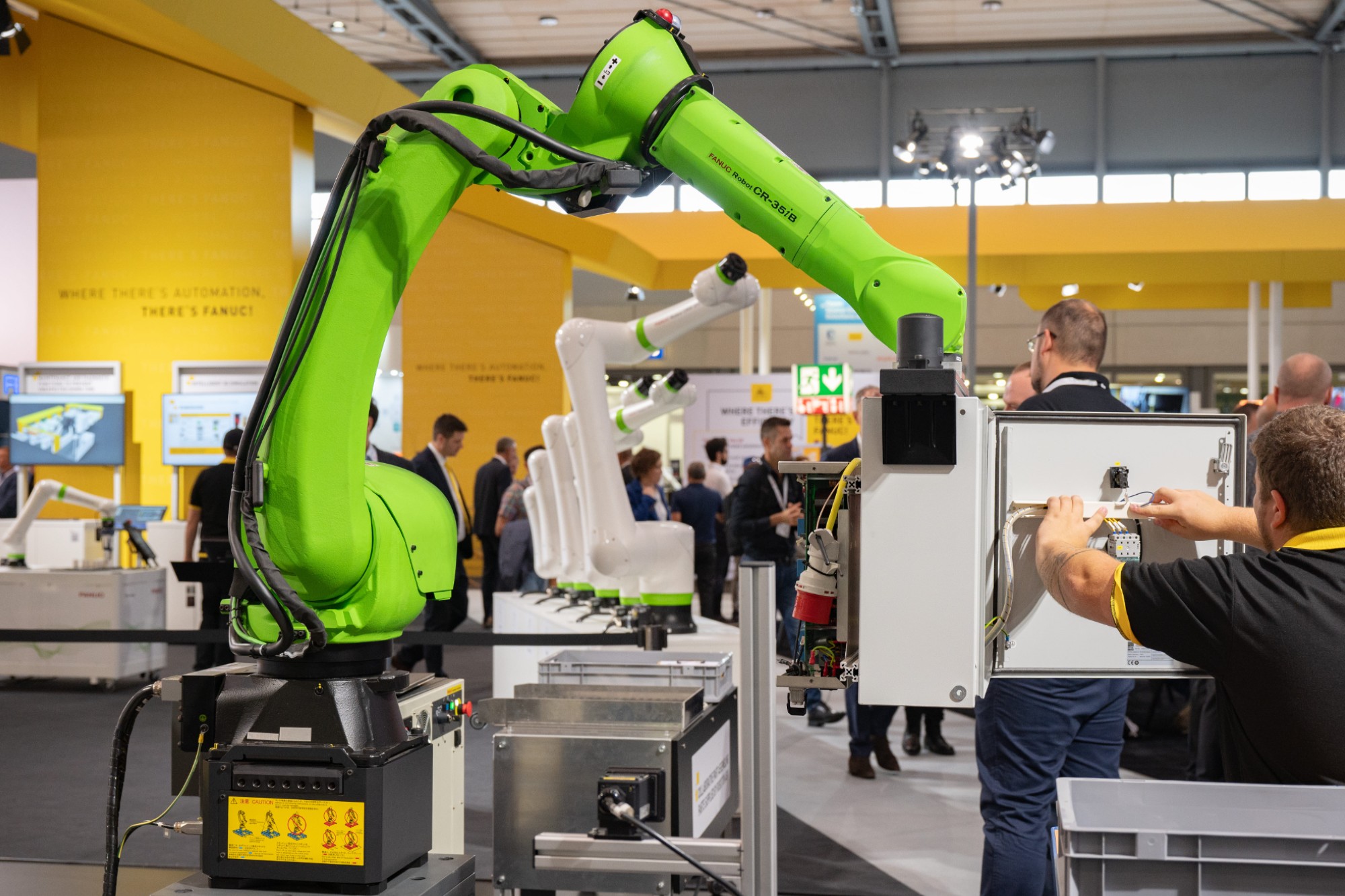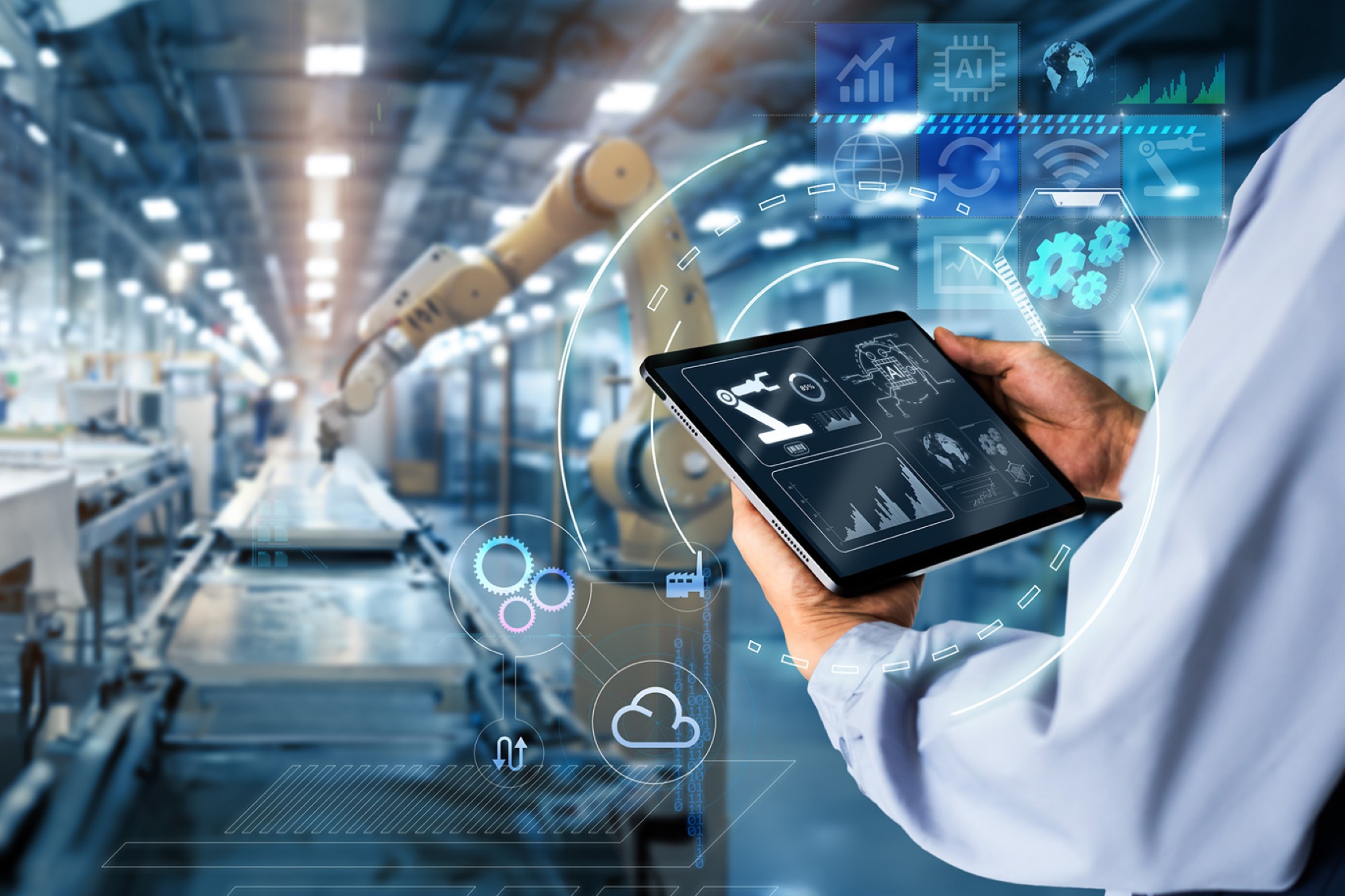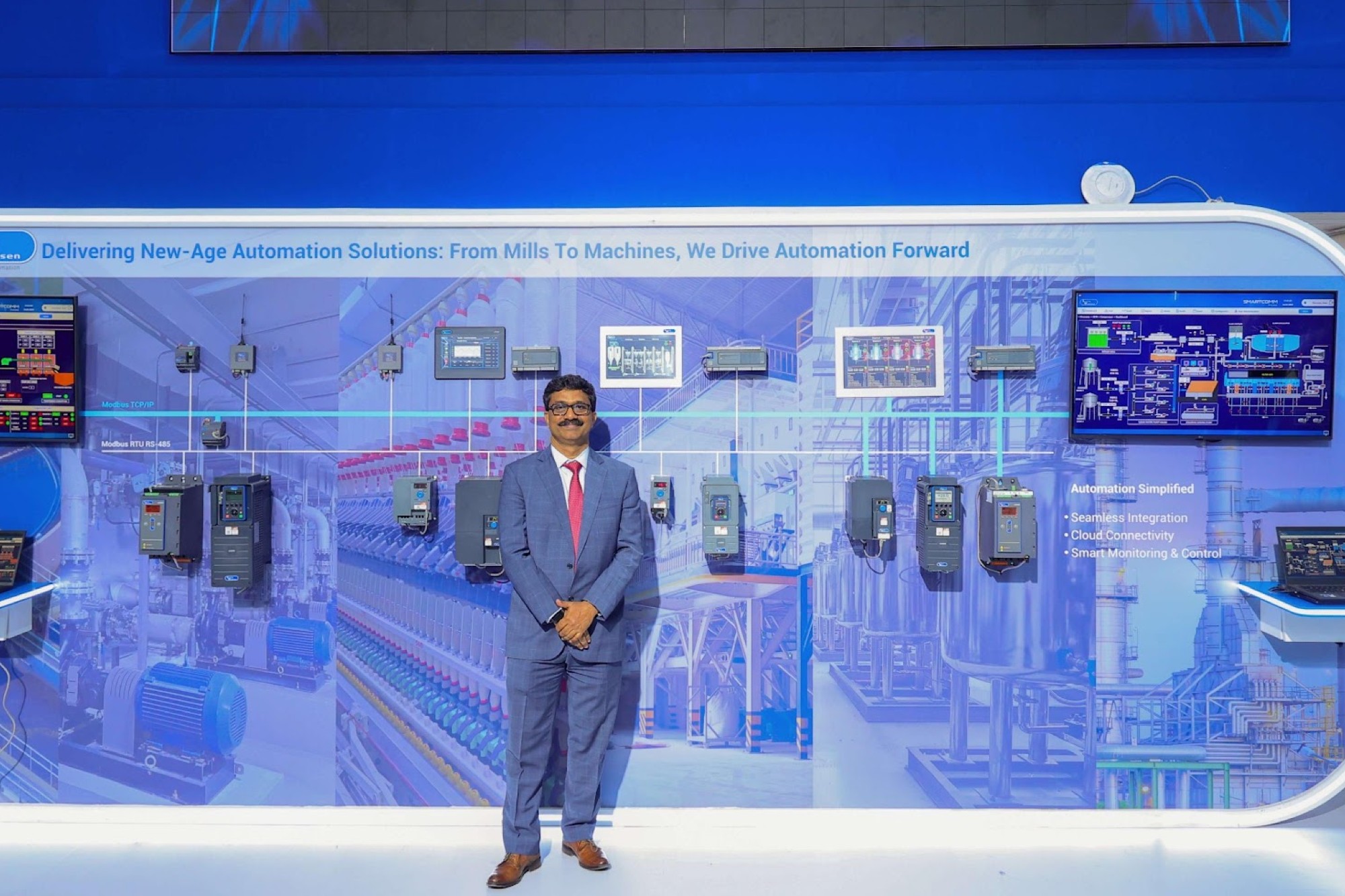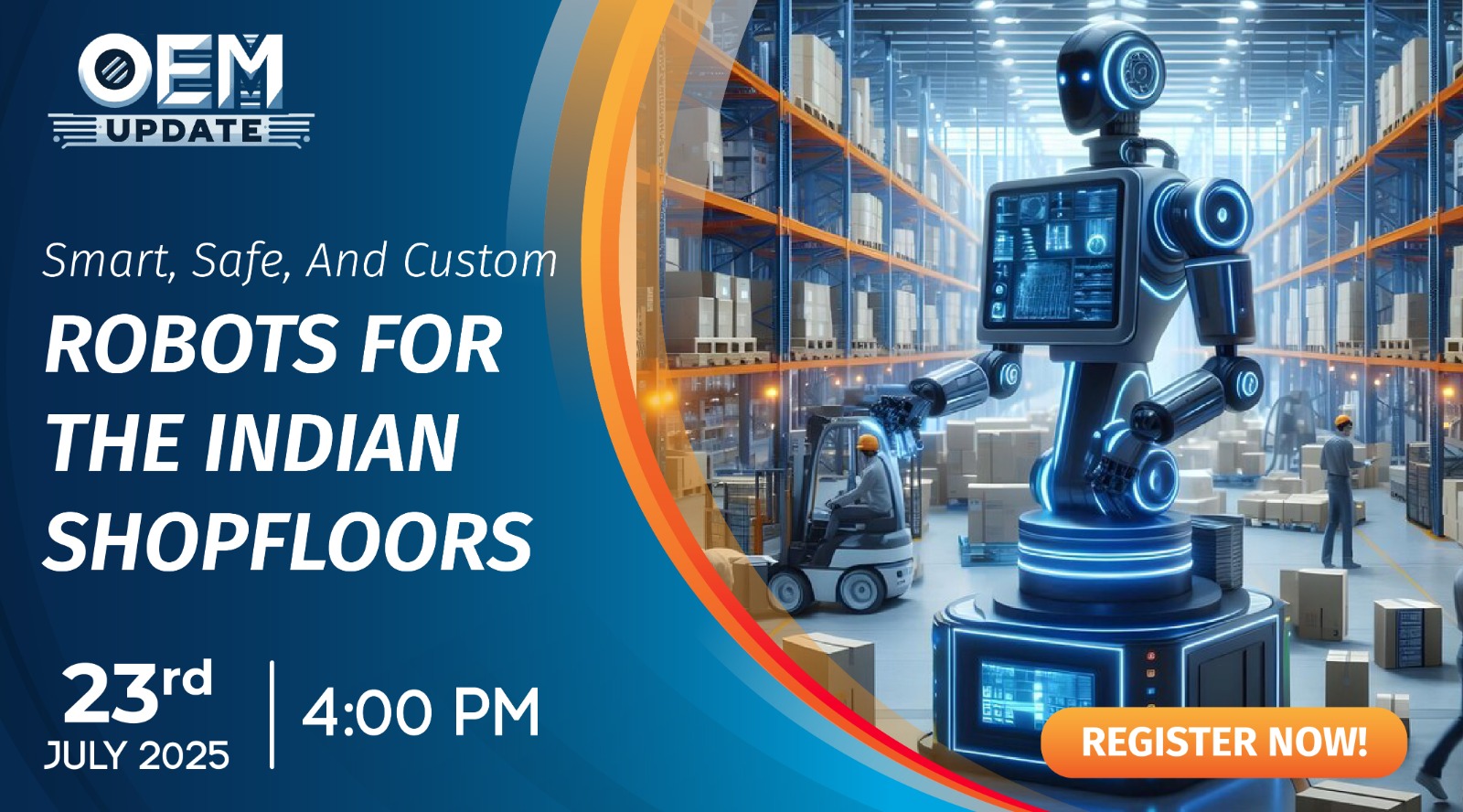Indian industries rapidly adopting automation technologies to enhance quality and productivity
By OEM Update Editorial April 1, 2023 7:02 pm IST
Automation technologies are revolutionizing the manufacturing and logistics industries, providing advantages such as increased productivity, enhanced quality, and reduced labor-related risks. With autonomous robotics, AI, and IoT, manufacturers can improve their productivity, accuracy, repeatability, and quality by incorporating robotics and automation solutions into their production lines. The Indian industries are rapidly adopting these technologies. As a result, the industrial automation market is projected to increase from USD 205.86 billion in 2022 to USD 395.09 billion by 2029, representing a CAGR of 9.8 percent.
Automation aims to improve manufacturing quality, efficiency, and productivity. This involves using autonomous robotics, artificial intelligence (AI), and the internet of things (IoT) for predictive maintenance to detect and fix product defects. Automation offers several advantages for warehouses, such as increasing productivity and reducing labour-related risks. Using advanced technology in smart factories leads to higher productivity and better quality. Logistics companies use AI to optimize various operations, including demand forecasting and robot delivery.
Retailers’ investments in automation are expected to drive significant growth in the industrial automation market, which is predicted to increase from USD 205.86 billion in 2022 to USD 395.09 billion by 2029, representing a CAGR of 9.8 percent. Furthermore, the warehouse automation market is projected to reach USD 51 billion by 2030, a CAGR of 23 percent. Manufacturers can improve productivity, accuracy, repeatability, and quality by incorporating robotics and automation solutions into their production lines. For instance, robots with three- or six-axis robotic arms can handle materials and pick-and-place tasks more quickly and efficiently.
Smart factories
Smart factories, which deploy automation technology in every connected machine to enhance output, represent a new generation of manufacturing under Industry 4.0. According to Himanshu Sharma, Head of Marketing & Corporate Communication at B&R Industrial Automation, adopting new technologies focusing on industrial application patterns and techniques leads to interconnectivity and smart automation, resulting in improved efficiency, maintenance, and machine data security.
When we discuss a “smart factory,” we’re primarily talking about automation and data exchange on the shop floor, which results in real-time visibility and analysis. While automation has become synonymous with robotics and machines to reduce employee workload, other manufacturing automation forms, such as robotics, conveyance, and vision, can be integrated into production tasks.
Robotics
Robotics, humans, and machines collaborate to deliver consistent quality. Human employees can concentrate on more complex issues by delegating mundane tasks to robots. Additionally, incorporating robots on the factory floor has significantly reduced error margins and increased precision.
Collaborative robots offer a safer and more efficient alternative to traditional industrial robots, according to Senthil Kumar V., Head of Industrial Automation at Schneider Electric India, and can operate alongside human workers, making them ideal for small and medium-sized businesses that require flexibility in their production processes. Robotics is being used to build robots that can handle various tasks in manufacturing, logistics, and other industries. They can be programmed to execute repetitive tasks with high accuracy, speed, and consistency.
IoT-enabled machines
From a technological standpoint, there is a growing interest in fast and accurate IoT-enabled machines that are essential for original equipment manufacturers (OEMs) to build the factories of the future. Adopting industrial automation systems as part of Industry 4.0 has transformed Indian industries, providing them with the necessary tools to execute predictive maintenance and minimize downtime. Augmented and virtual reality technologies are used to run production lines efficiently and remotely commission and troubleshoot machines. Furthermore, leveraging machine learning (ML) algorithms enables industries to diagnose issues, minimize manufacturing errors, and save time and money.
Indian industries are focusing on energy efficiency and sustainability to an unprecedented degree, driving the adoption of advanced drives and control technologies. Automation technologies, such as automated guided vehicles (AGVs), robotic arms, and automated storage and retrieval systems (AS/RS), are transforming the Indian logistics and warehousing industry, reducing costs, improving productivity, and enhancing competitiveness through operational accuracy. According to Senthil Kumar, industrial automation reduces production costs and improves product quality, resulting in long-term profits.
“Robotics is being leveraged to develop robots that can perform various tasks in manufacturing, logistics, and other industries.”
Himanshu Sharma, Head Marketing & Corporate Communication, B&R Industrial Automation.
“There are newer trends that will dominate the market in the coming years. This is mainly due to the adaptation to the new digital life.”
Vijaykrishnan Venkatesan, Managing Director –India and Infrastructure, Business APAC, Kennametal India Limited.
“Augmented Reality and Virtual Reality technologies are being used for the efficient running of production lines as well as remote machine commissioning and troubleshooting.”
Amol Bari, Head – Services Business, Pilz India Pvt. Ltd.
“Today, machine builders, factories, and plants look at automation as a means to optimise operations and processes, helping them become more productive, efficient, and profitable.”
B. Karthik, Vice President & Business Head -Automation Division, Fuji Electric India Pvt. Ltd.
“Industrial automation is confronted with new difficulties and opportunities due to digitisation, particularly Industry 4.0 and the Industrial Internet of Things.”
Sandhya Pande, Director and Site Leader, Connected Care Business, Philips HIC Pune.
“The shift in the manufacturing industry from 4.0 to 5.0 is becoming evident. The availability of data will be enhanced with the new 5G technology, and data processing and interpretation will be faster, leading to quicker decision-making.”
Cookie Consent
We use cookies to personalize your experience. By continuing to visit this website you agree to our Terms & Conditions, Privacy Policy and Cookie Policy.
















